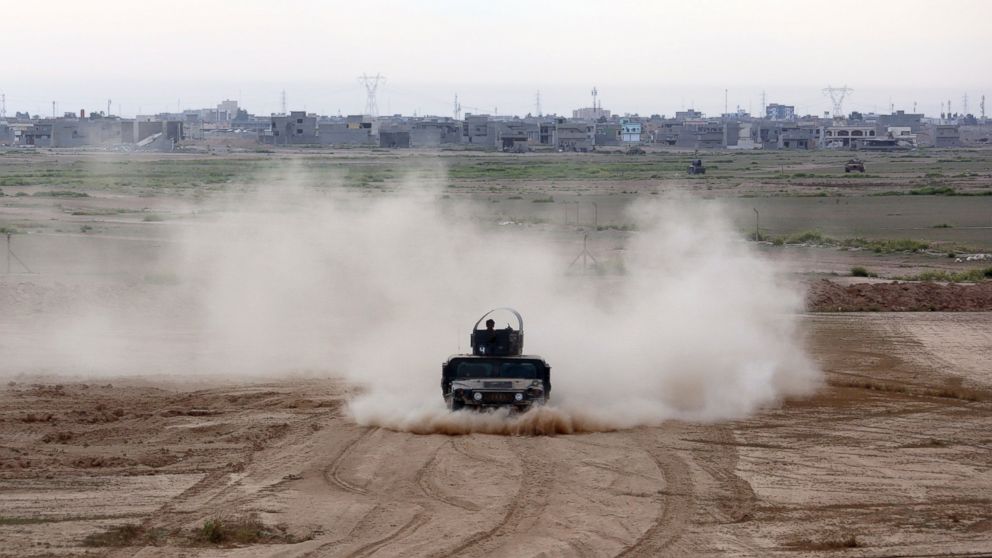Iran Offered Iraq 'Open Check' in ISIS Fight, Official Says
Iraqi Amb. says Iraq's close relationship with Iran is a "Washington problem."

ASPEN, Colorado— -- In stark contrast to the U.S. government's measured approach to countering ISIS in Iraq through the deployment of military advisors and stand-off airstrikes, Iran flatly offered Iraq an "open check" to battle the Islamic extremists, the Iraqi Ambassador to the U.S. said today.
"In relation to Iran, it also sees the threat of ISIS is a threat to its national security," Iraqi Ambassador Lukman Faily told the audience at the Aspen Security Forum today, noting that at one point ISIS forces were within 25 miles of the Iranian border to Iraq's east. "And their approach to it, more or less, was to have what I might call an open check with Iraq. 'What do you need?' And they offered us literally anything we wanted, troops and everything else, air force usage and everything else."
Faily indicated that Iraq has not used everything the Iranians have offered, since the Iraqi government is cognizant of the support it needs from other anti-ISIS elements, including U.S. support in the "Iraqi-driven project."
When New York Times correspondent Eric Schmitt, who was moderating the Aspen panel, pointed out that such an arrangement with Iran has given U.S. officials in Washington pause, Faily said, "That's a Washington problem, not an Iraqi problem."
Longtime opponents, the U.S. and Iran have found themselves curiously on the same side in the battle against ISIS in Iraq -- but U.S. officials insist the U.S. does not coordinate its activities with Iran.
Iran has reportedly sent its own troops into Iraq -- including special forces soldiers and top military commanders. Faily said Iran has less than 200 military advisors on the ground -- far less than the U.S. -- but those that are there fight on the front lines with Iraqi soldiers. As far back as December 2014, Iranian jets reportedly bombed ISIS targets in Iraq. At the time then-Pentagon spokesperson John Kirby told reporters there was "no indication that the reports are not true," but repeated that the U.S. was not coordinating military activities with Iran.
Iran is also suspected of backing and directing Shia militias, some of which became the focus of an ABC News investigation following allegations that the Shia anti-ISIS militias were committing atrocities as bad as the terror group they were fighting.
In March, Secretary of State John Kerry said the U.S. is "not blind" to Iran's military influence in Iraq.
"With respect to Iraq, we absolutely have known of Iran’s engagement in the northeastern parts of Iraq and, indeed, we’ve had conversations with Prime Minister [Haider] al-Abadi about it. He doesn’t hide it, and we’re not blind to it," Kerry said. "And while we are not coordinating with Iran -- we do not have conversations with Iran about this -- we work through the Iraqi Government. We do so with the knowledge that they are also opposed to Daesh [ISIS] and are working for Daesh’s defeat."
Faily said today that basically, the Iraqi government will take help against ISIS wherever they can get it.
"We have a common threat with other countries, including Iran, in the sense of ISIS, and as much as we can get help to that effect, we have no psychological obstacle to the support of any country in our fight, including Iran," he said.




